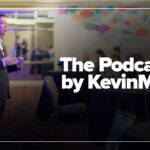HBO’s The Pitt collected thirteen Primetime Emmy nominations this year, winning both Outstanding Drama Series and Outstanding Lead Actor in a Drama Series for Noah Wyle. But the recognition was not just for great television. The series struck a cultural nerve because it captured something raw and real: the emotional side of medicine. Viewers saw the chaos of an emergency room after a mass casualty event, the head physician crumbling under the weight of grief, and the devastating moment when a doctor had to tell parents their son was brain-dead. As Wyle noted in his acceptance speech, what makes for gripping onscreen drama is daily reality for physicians, nurses, and surgeons. Medicine is an emotional profession. Yet for generations, medical training has taught clinicians to treat feelings as distractions: to compartmentalize, power through, and leave emotions at the door.
But detachment is a myth. Every day, clinicians shoulder the invisible emotional labor of fear, grief, anger, frustration, and self-blame, yet are rarely given the tools to process them. A physician might feel the pit in their stomach after a poor outcome, absorb the fury of a grieving family, and then, just minutes later, steady their hands to hang another IV bag and meet the next patient with a reassuring smile. This relentless cycle of suppressing, switching, and showing up exacts a steep toll. Ignoring emotions does not erase them; it drives them underground, where they reemerge as burnout, compassion fatigue, or despair. The consequences are now painfully clear: as staffing shortages collide with record-high burnout rates among health care practitioners, those we depend on for care are struggling. And when physicians are not well, neither is the system.
It does not have to be this way. Training in emotional intelligence (the ability to recognize emotions, understand their causes, and regulate them deliberately) is not about sentimentality. It is about survival. It is about making space for the full humanity of doctors and patients alike, so that the system can sustain itself. At the Yale Center for Emotional Intelligence, we teach these skills through the RULER framework: recognizing, understanding, labeling, expressing, and regulating emotions. While RULER is best known for transforming classrooms in more than 5,000 schools worldwide, its power translates directly into hospitals and clinics. At Smilow Cancer Hospital in New Haven, physicians who participated in emotional intelligence training learned to identify triggers, manage stress in real time, communicate with empathy, and extend compassion to themselves when outcomes fell short.
“Emotions, and the science of why they matter, remain too often the missing piece in the education of medical practitioners,” says Dr. Roy Herbst, chief of medical oncology and hematology at Yale Cancer Center. Over five years of retreats, small-group work, and coaching, physicians reported stronger teamwork, healthier expression of frustration, greater self-compassion, and noticeable improvements not only at work but at home, where calmer family dinners and smoother transitions became part of the ripple effect. The Pitt dramatizes what this looks like: a physician pausing to breathe before delivering devastating news to a patient’s family; a doctor yielding to frustration in a heated debate but re-grounding to join prep with their trauma team; a colleague offering kindness instead of shame when a peer’s hidden struggles surface. These are not just moving plotlines. They are teachable skills.
When ignored, emotions leak out as impatience, miscommunication, or corrosive self-blame. Decades of research tells us that tending to feelings does not weaken authority. Instead, it strengthens our ability to lead with clarity and compassion. When recognized and managed, emotions become a source of strength, shaping sharper decisions, stronger teamwork, and deeper trust with patients.
How health care leaders can act now
Teach EI at every stage. Embed emotional intelligence (and its benefits for well-being and performance) into medical school curricula and create a series of ongoing interactive professional development sessions so clinicians can do more than learn; they can practice using skills to enliven case studies. When we embody our learning, it is more likely to show up in our daily practice.
Invest in emotionally intelligent leadership. Leaders set the tone. Research shows emotionally intelligent leaders create cultures with less fear of authority, greater psychological safety for speaking up and calling out issues, less absenteeism, less burnout, greater well-being and in all, strengthen culture resilient enough to withstand constant stressors.
Make space for mindfulness. Even a minute of breathing can reset the nervous system. Take a pause between when you feel or notice a trigger and when you respond; just a few seconds can help to calm your arousal system so that you are better able to think clearly and make good choices. Stepping outside for few minutes, shutting a door to your office, or stepping in the supply closet for a minute to breathe, or using an app like How We Feel between patients can restore calm and sharpen focus.
Name emotions explicitly. Saying “I am grieving” or “I am exhausted” may sound simple, but research shows that when you “name it” you can “tame it” and use a go-to strategy to take action. Labeling your emotions discretely helps in communicating your needs clearly and hearing those of others and allows you to identify those strategies that are a good fit for you when dealing with specific emotions. For some, texting a friend to set up a time to talk can quell anxiety in the moment, for others, shifting focus to another’s needs can take your mind off your immediate tension, for others a mantra of positive self-talk “this too shall pass.”
Create space to debrief with a trusted colleague. Sharing emotional weight with colleagues after surgery, a clinic day, or a loss is restorative. Social support not only feels good but is good for you. Studies show that social support is a predictor of well-being throughout your life. And in the immediate moment, patients benefit when their doctors are not only technically skilled but also emotionally present. Emotions are contagious, and calmness is as contagious as panic.
As every episode of The Pitt highlighted, doctors and nurses, like all of us, are emotional beings. By equipping physicians with the tools of emotional intelligence, we preserve their humanity, sustain their well-being, and improve outcomes for every patient who depends on them. We acknowledge that emotional intelligence is not an “extra.” It is medicine practiced at its highest level.
The views expressed here are of the authors and not of Yale School of Medicine.
Robin Stern is a psychoanalyst. Marc Brackett is a professor of psychology.



















![AI censorship threatens the lifeline of caregiver support [PODCAST]](https://kevinmd.com/wp-content/uploads/Design-2-190x100.jpg)

